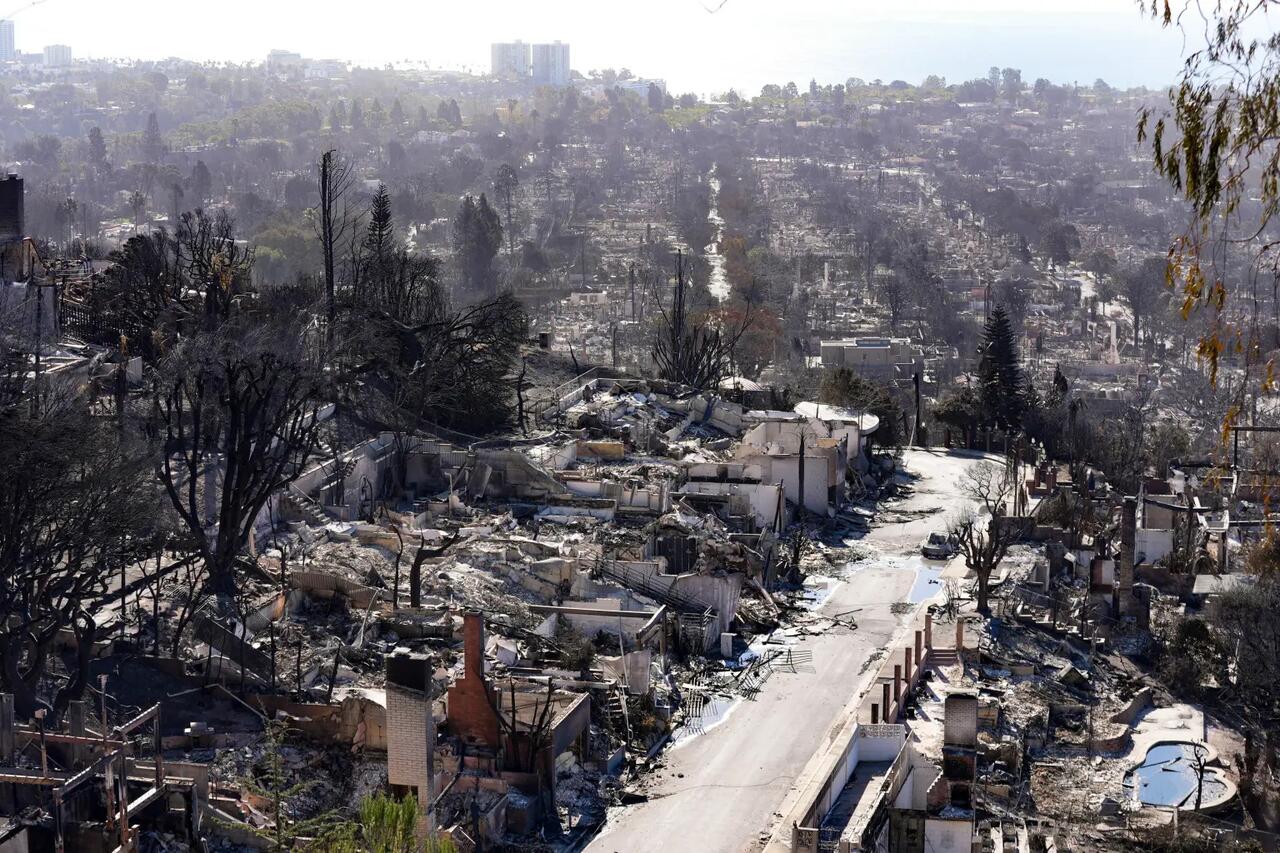California eco-regulators halted a critical wildfire prevention project near Palisades in the Pacific Ocean to protect an endangered shrub — only to keep the same area in flames during the Palisades fire, the most destructive fire in Los Angeles history.
In 2019, the LA Department of Water and Electricity (LADWP) began replacing aging wooden power poles – some nearly a century old – with refractory steel poles and expanding fire barriers in the fire-prone Topanga State Park. The $2 million project was designed to strengthen fire safety after the area was considered a “heightened fire risk.”
“This project will help ensure capacity reliability and safety while helping reduce the risks of wildfires,” LADWP reported at the time, reports NY Post.
But the effort stopped abruptly when an amateur botanist hiking in the park noticed that some of the rare Braunton milkweed bushes — an endangered species with only a few thousand wild specimens — had been damaged during the work. Conservationists raised alarms by accusing the city of working without proper permits, and the California Coastal Commission ordered LADWP to halt the project, replant damaged bushes and pay $2 million in fines.
Fast forward to 2024: Nearly 24,000 acres – including much of Topanga Canyon – have risen in smoke, taking with them not only homes and wildlife, but also the same shrubs that the project was supposed to protect.
The Palisades fire has destroyed 12,000 homes, businesses, schools and other buildings – claiming at least 24 lives and leaving thousands displaced. Meanwhile, firefighters were battling low water pressure and empty hydrants as they battled inferno.

Disputes over nature conservation and fire prevention have once again sparked heated debate. Critics point out that key reservoirs like the Santa Ynez reservoir — which holds 117 million gallons — were completely dry when the fire broke out. Despite Governor Gavin Newsom’s assurances that Southern California’s reservoirs were “completely full,” the empty reservoir has become a focal point of frustration.
Newsom has since begun investigating the reservoir’s failure, but the timing has done little to quell criticism.
Growing political firestorm
President-elect Donald Trump seized on the disaster to criticize Newsom’s actions in preventing wildfires. Trump blasted the governor’s conservation policy, accusing him of preferring “worthless” wildlife to human lives.
“He wanted to protect an essentially worthless fish called a sulat… but didn’t care about the people of California,” Trump wrote in the Truth Social publication, referring to the delta thaw, an almost extinct fish that has become a symbol of California’s ongoing water wars.
The hostility between Trump and Newsom dates back to 2020, when Newsom sued to block Trump’s federal order to divert northern California water to southern California reservoirs, citing concerns about endangered species. The near-extinction of the delta meltdown has fueled arguments from both sides: environmentalists condemn ecological loss, while critics say conservation efforts have led to little but regulatory bureaucracy.
Environmentalists protecting Braunton’s milk algae say wildfires can help the plant sprout from dormant seeds, creating a chance for the bush to recover. Critics, however, see the loss of homes and lives as a stark reminder of the cost of bureaucracy.
Despite promises to prioritize fire prevention, the Palisades Pacific region remains a cautionary tale of what happens when disaster preparedness collides with environmental bureaucracy. Neither LADWP nor the California Coast Commission has responded to requests for comment, leaving residents wondering if the policies designed to protect them helped fuel the flames.